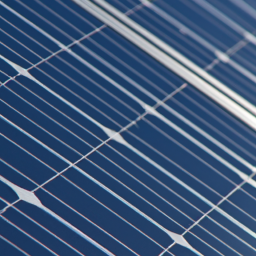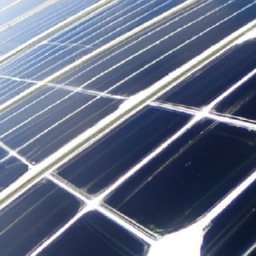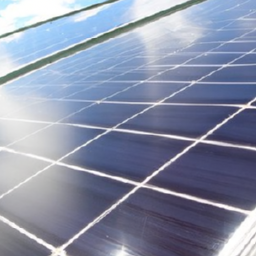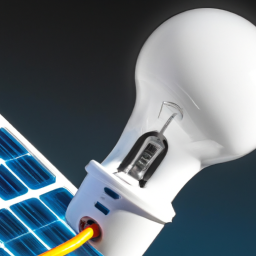Have you ever wondered how long a solar generator can provide power? Well, you’re in luck because in this article, we’re going to break it down for you. Solar generators are becoming increasingly popular for their ability to harness the sun’s energy and provide a source of power in remote areas or during power outages. But how long can they actually provide power?
The answer to this question depends on various factors such as the size of the solar generator, the capacity of its battery, and the amount of sunlight available. Generally, a solar generator can provide power for a few hours up to several days. Small portable solar generators may be able to power small devices like phones or laptops for a few hours, while larger solar generators with bigger battery capacities can provide power for several days to a week.
However, it’s important to note that the actual runtime of a solar generator can vary depending on the energy consumption of the devices being powered and the weather conditions. On cloudy or rainy days, the solar panels may not be able to generate as much energy, resulting in shorter power supply. Additionally, if you’re using power-hungry appliances like refrigerators or heaters, the runtime of the solar generator will be significantly shorter.
If you’re interested in learning more about solar generators and how to maximize their power output, keep reading our article. We’ll provide you with some tips and tricks to ensure you get the most out of your solar generator. So, whether you’re planning a camping trip or preparing for a potential power outage, understanding how long a solar generator can provide power will help you make informed decisions. A solar generator can provide power for a significant amount of time, but the duration depends on several factors. In this article, we will explore the different factors that can affect the power duration of a solar generator.
Factors Affecting Solar Generator Power Duration
Battery Capacity
The battery capacity of a solar generator plays a crucial role in determining its power duration. The battery capacity refers to the amount of electrical energy that the battery can store. It is usually measured in ampere-hours (Ah) or kilowatt-hours (kWh). The higher the battery capacity, the longer the solar generator can provide power.
Calculating the battery capacity required for your solar generator involves considering your energy needs. You need to estimate the amount of power you consume daily and the number of days you want your solar generator to provide power in the absence of sunlight. By multiplying your daily power consumption by the desired number of days, you can calculate the battery capacity needed.
The battery capacity directly impacts the power duration of your solar generator. A higher battery capacity enables your generator to provide power for a longer time, especially during periods of limited sunlight or cloudy days.
Output Power
The output power of a solar generator determines the amount of electrical energy it can deliver at a given time. It is usually measured in watts (W) or kilowatts (kW). The higher the output power, the faster the energy is delivered, and the shorter the power duration.
To calculate the maximum output power of your solar generator, you need to consider the wattage rating of your generator and any power losses during transmission. For example, if your generator has a maximum output power of 1000 watts and you have a 95% transmission efficiency, the maximum output power available for your devices would be 950 watts.
The output power affects the power duration of your solar generator. Higher output power generators may provide power for a shorter duration, especially when there are power-hungry devices connected to the generator.
Solar Panel Efficiency
The efficiency of the solar panel used in the solar generator also affects its power duration. Solar panel efficiency refers to the ability of the solar cells to convert sunlight into electricity. The higher the efficiency, the more electricity can be generated from a given amount of sunlight.
Several factors can influence solar panel efficiency, such as the materials used, the design of the solar cells, and the temperature. It is important to choose solar panels with high efficiency to maximize the power duration of your solar generator.
In terms of power duration, higher solar panel efficiency means more electricity can be generated from the same amount of sunlight, thus potentially extending the power duration of your solar generator.
Usage Patterns and Energy Consumption
Analyzing your energy consumption patterns is crucial in determining the power duration of your solar generator. You need to consider the amount of power your devices consume daily and how long you intend to use them.
Estimating your daily usage involves calculating the total power consumed by all your devices on a typical day. By multiplying the power ratings of each device by the number of hours you use them, you can determine your daily energy consumption.
Managing power demands is also important in maximizing the power duration of your solar generator. By prioritizing essential devices and minimizing the usage of power-hungry devices, you can extend the time your solar generator can provide power.
Environmental Conditions
The environmental conditions where your solar generator is located can also affect its power duration. Temperature, sunlight intensity, shading, and obstructions can impact the performance of your solar generator.
Extreme temperatures, either too hot or too cold, can affect the efficiency of the solar panels and the battery performance. It is important to choose a location that allows your solar generator to operate within the optimal temperature range.
Sunlight intensity also plays a crucial role in the power duration of your solar generator. Areas with high sunlight intensity can generate more electricity, resulting in a longer power duration. However, areas with limited sunlight may experience shorter power durations.
Considering shading and obstructions is essential in maximizing the power duration of your solar generator. Shading from nearby buildings, trees, or other structures can significantly reduce the amount of sunlight your solar panels receive, thus affecting the power output of your generator.
Battery Charging Methods
The method you use to charge your solar generator’s battery can also impact its power duration. There are three main charging methods: solar charging, external charging, and hybrid charging systems.
Solar charging involves using the solar panels to directly charge the battery. This method relies on sunlight to generate electricity and charge the battery. It is the most sustainable and environmentally friendly charging method.
External charging involves using external power sources, such as grid electricity or a gasoline generator, to charge the battery. This method allows for faster charging but can result in higher costs and environmental impact.
Hybrid charging systems combine both solar charging and external charging methods. These systems provide flexibility and backup options, ensuring a continuous power supply even during low sunlight periods.
The charging method you choose can affect the power duration of your solar generator. Solar charging allows for continuous power generation from sunlight, resulting in a longer power duration.
Power Management and Storage
Optimizing your power usage and efficiently storing excess energy can greatly impact the power duration of your solar generator. By managing your power demands and using power-efficient devices, you can maximize the energy stored in your battery.
Storing excess energy is important, especially during periods of high sunlight when your solar panels generate more electricity than you immediately consume. This excess energy can be stored in the battery for later use, thus extending the power duration.
Using power-efficient devices, such as LED lights and energy-efficient appliances, can also help reduce your energy consumption, ultimately increasing the power duration of your solar generator.
Maintenance and Upkeep
Regular inspections, battery maintenance, and panel cleaning are essential in maintaining the efficiency and performance of your solar generator.
Regular system inspections allow you to identify any issues or malfunctions early on, preventing potential downtime and reducing the risk of power duration disruptions.
Battery maintenance involves monitoring the battery’s health, checking its charge levels, and ensuring proper connections. Proper battery maintenance can prolong its lifespan and optimize its performance, resulting in a longer power duration.
Cleaning solar panels is important to remove dust, debris, and any other obstructions that can reduce the efficiency of the solar cells. Regular cleaning ensures optimal sunlight absorption and maximum power generation.
Conclusion
In conclusion, the power duration of a solar generator depends on several factors, including battery capacity, output power, solar panel efficiency, usage patterns, environmental conditions, charging methods, power management, and maintenance. Each of these factors can significantly influence how long your solar generator can provide power.
To maximize the power duration of your solar generator, it is important to choose a generator with sufficient battery capacity, optimize your power usage, consider environmental conditions, use solar charging whenever possible, and perform regular maintenance. By considering these factors and implementing the appropriate strategies, you can ensure that your solar generator provides power for an extended period, meeting your energy needs in a clean and sustainable way.




